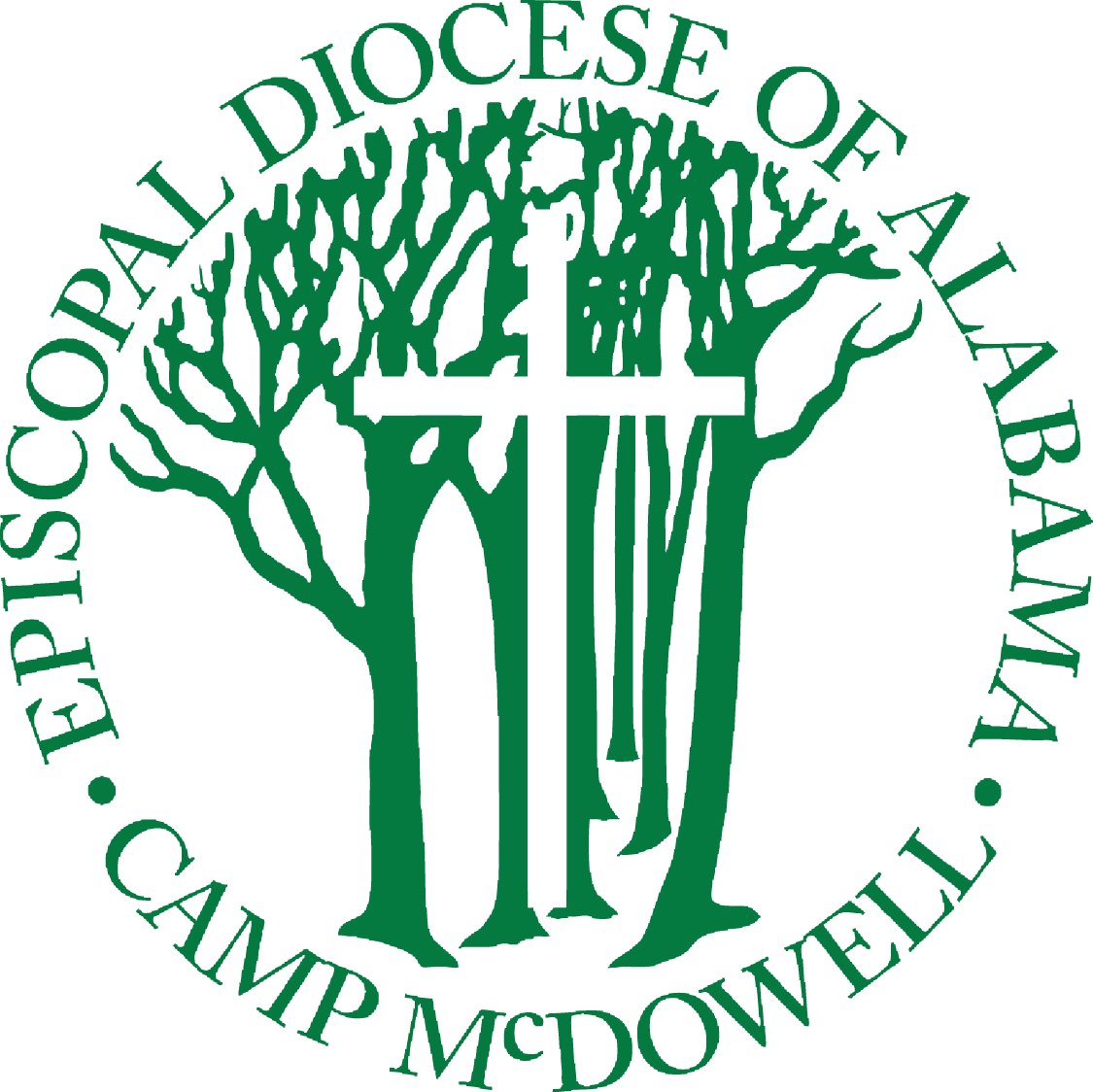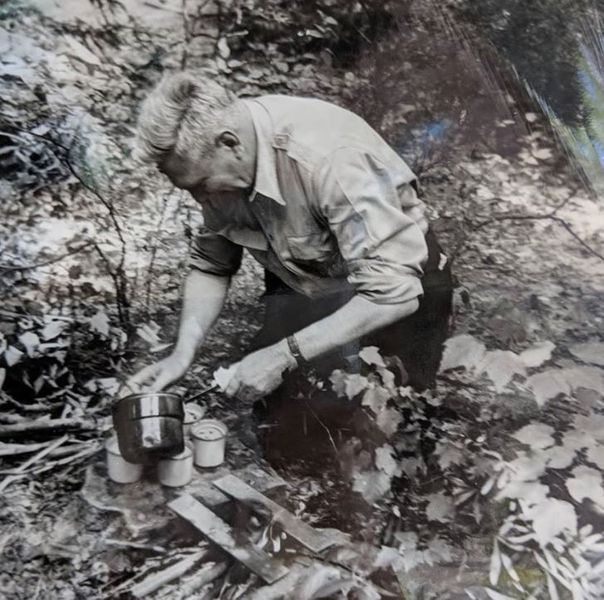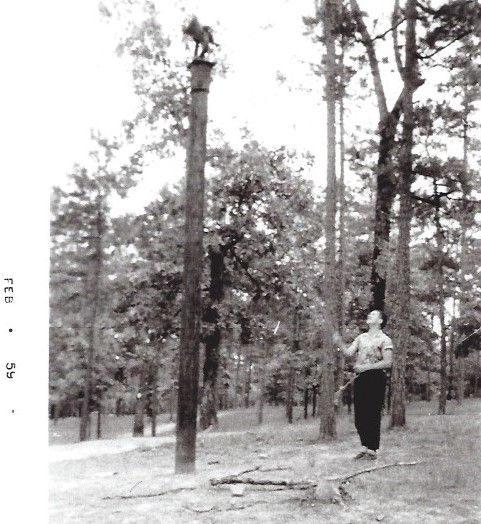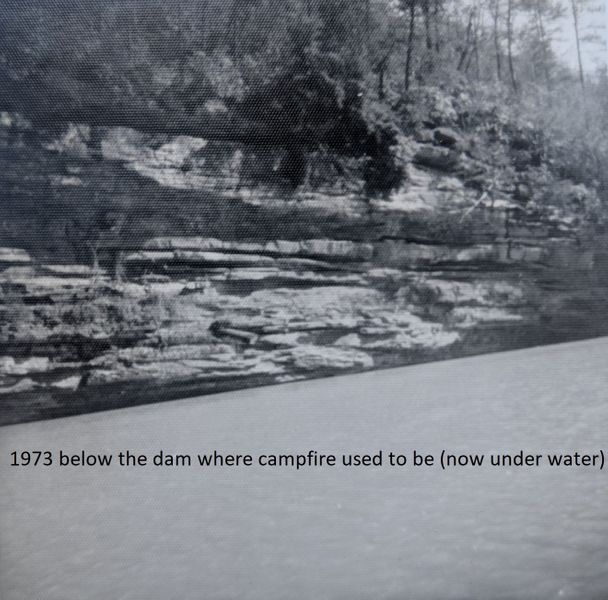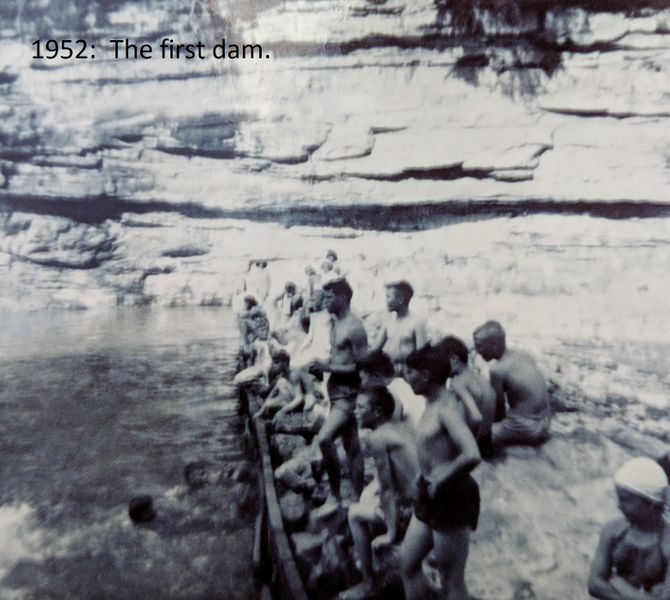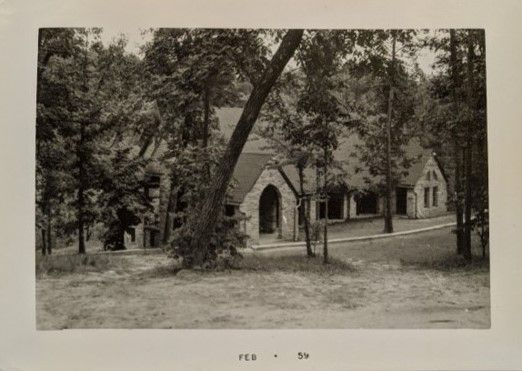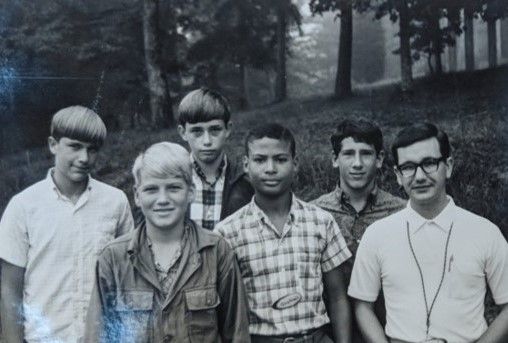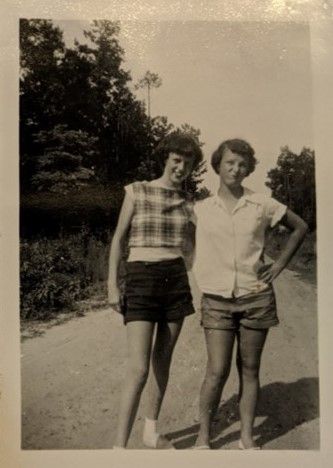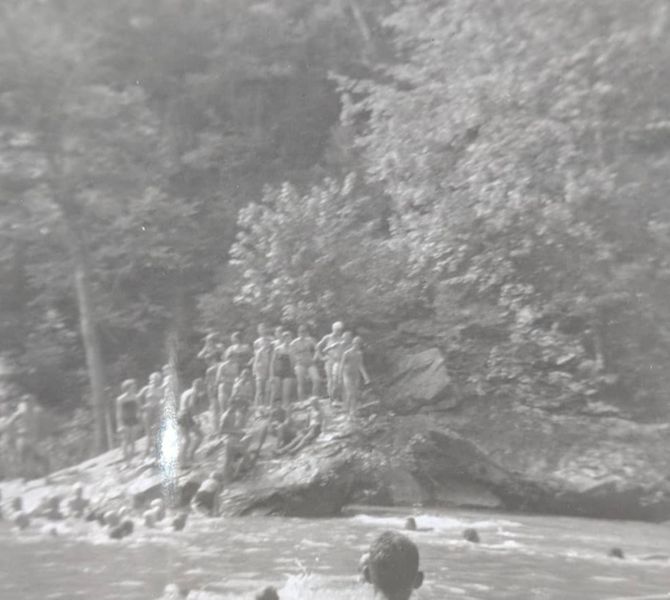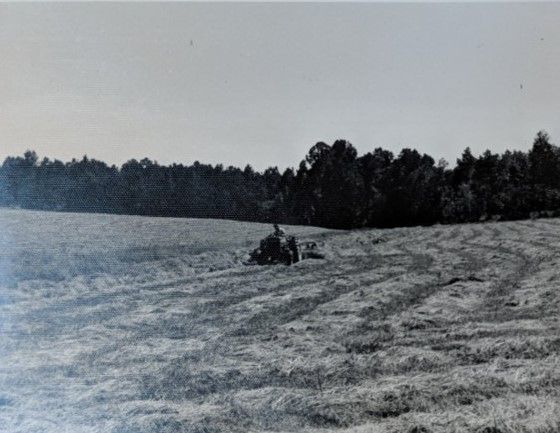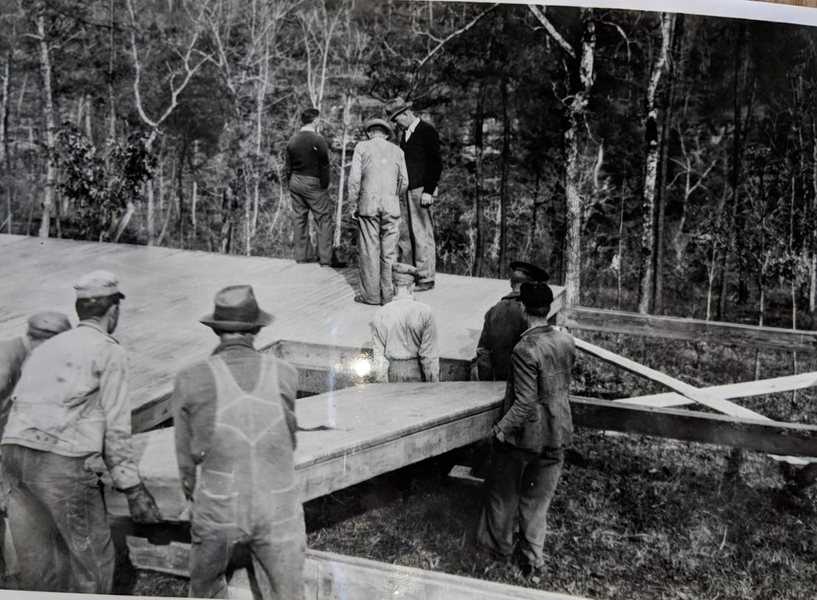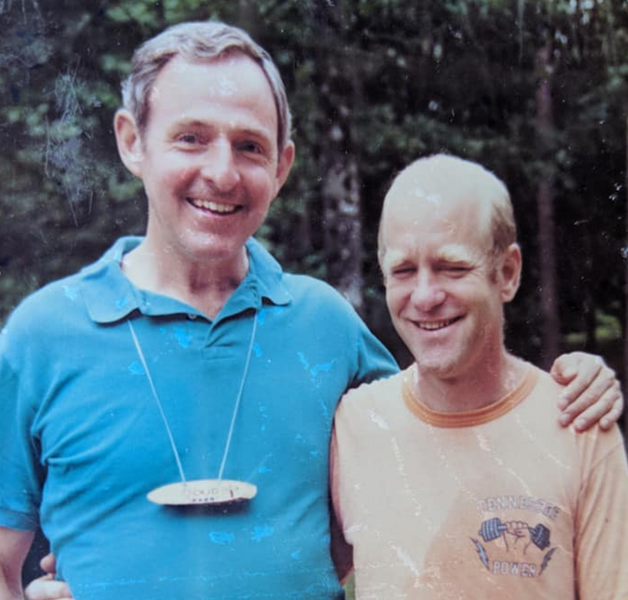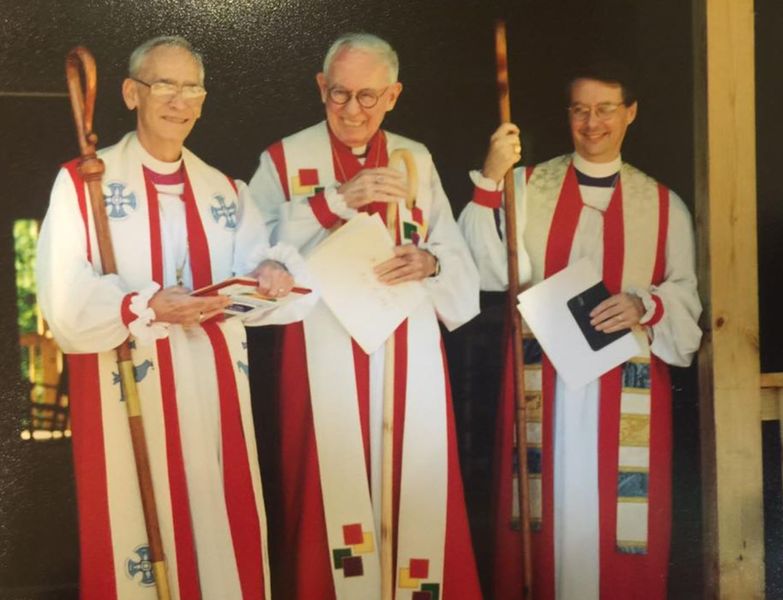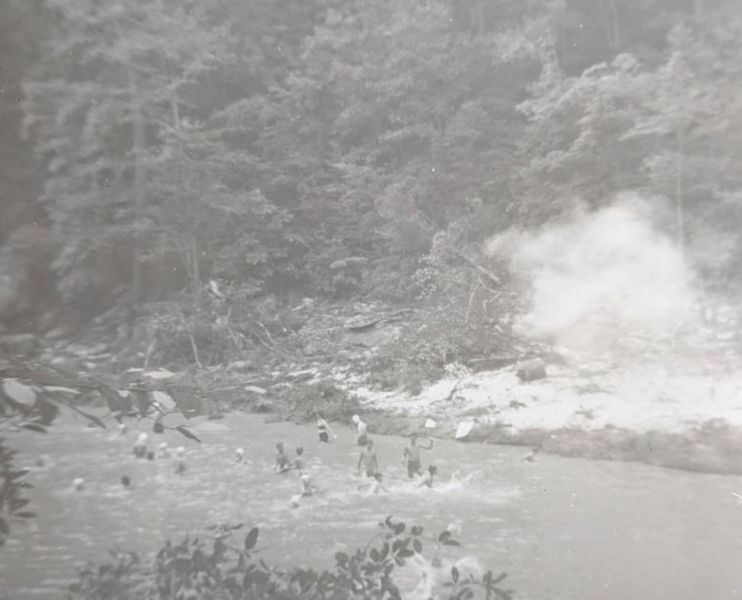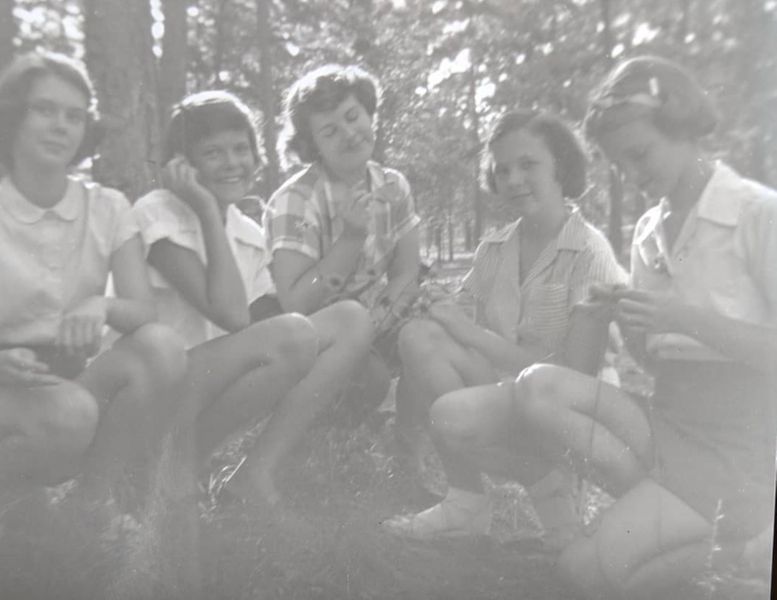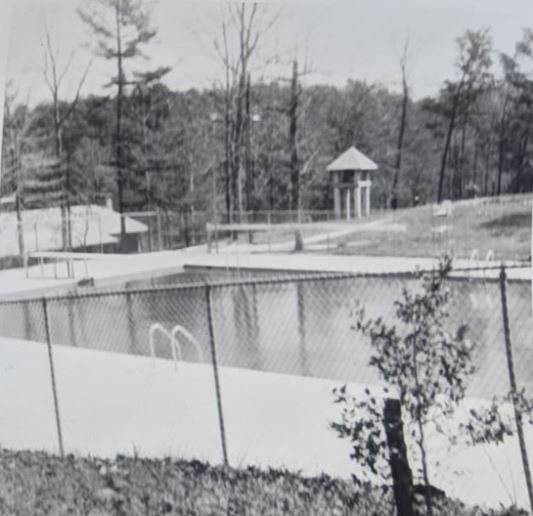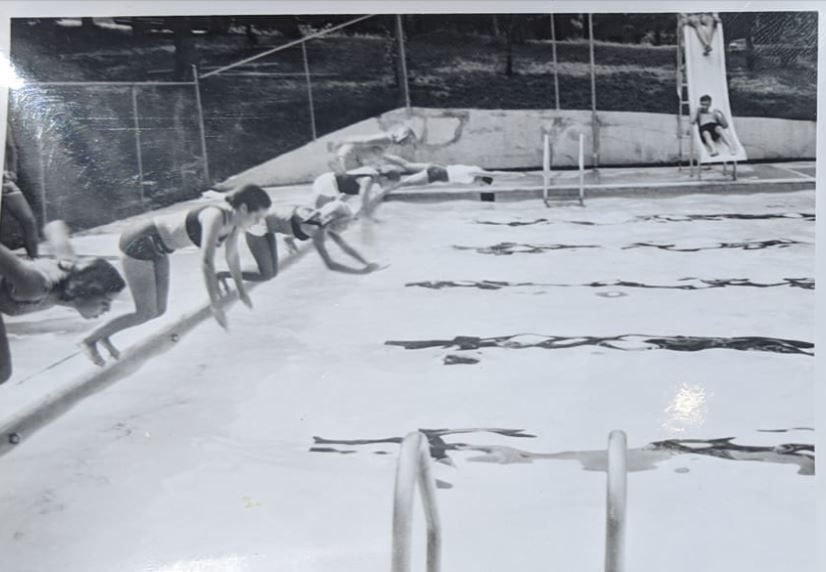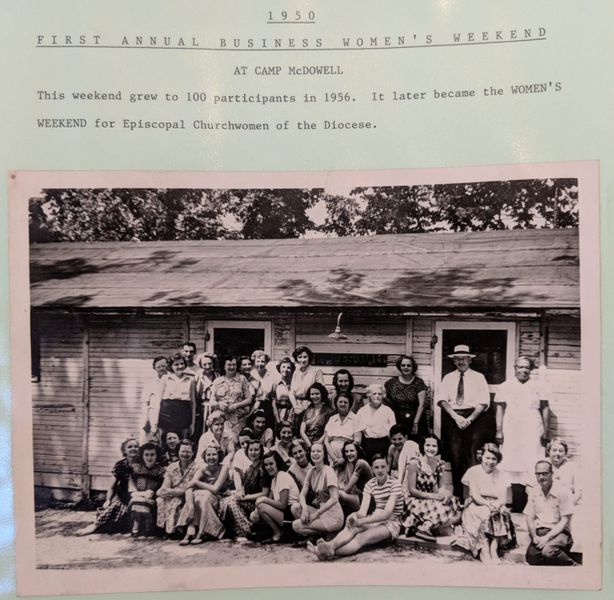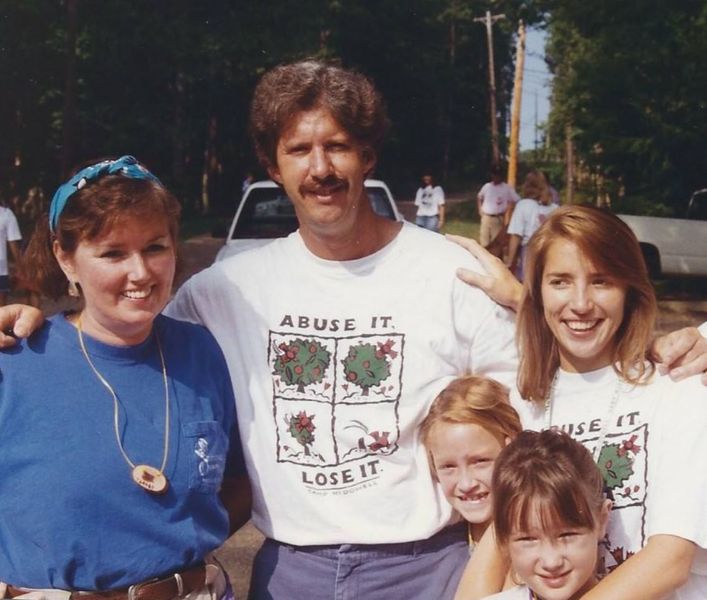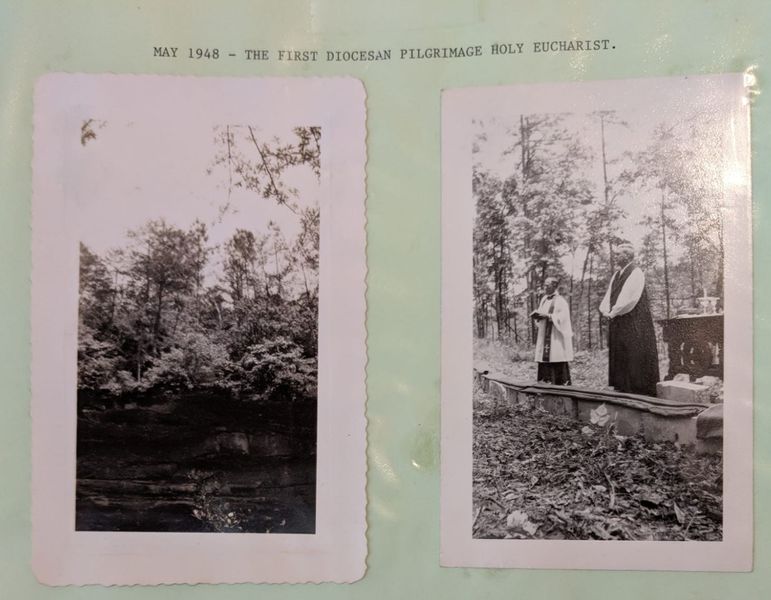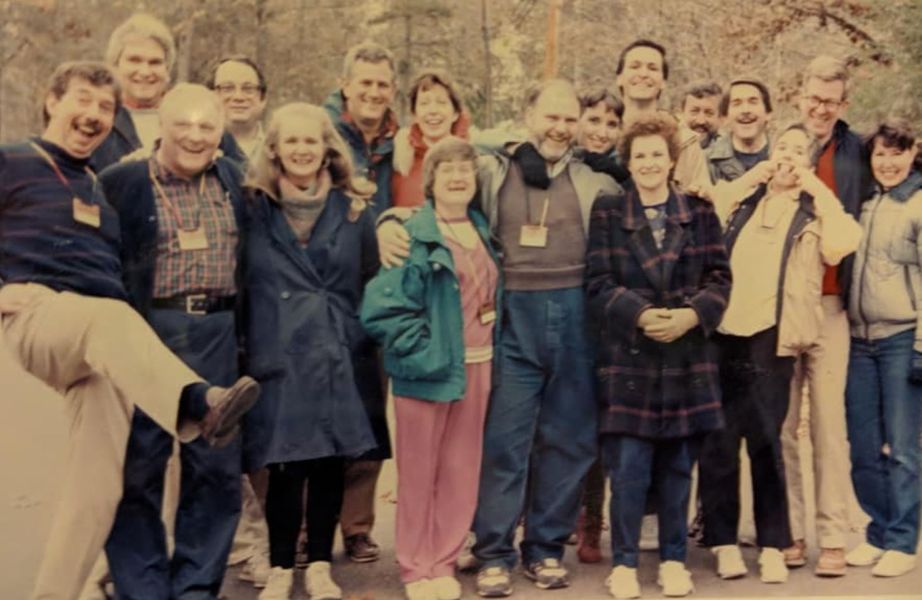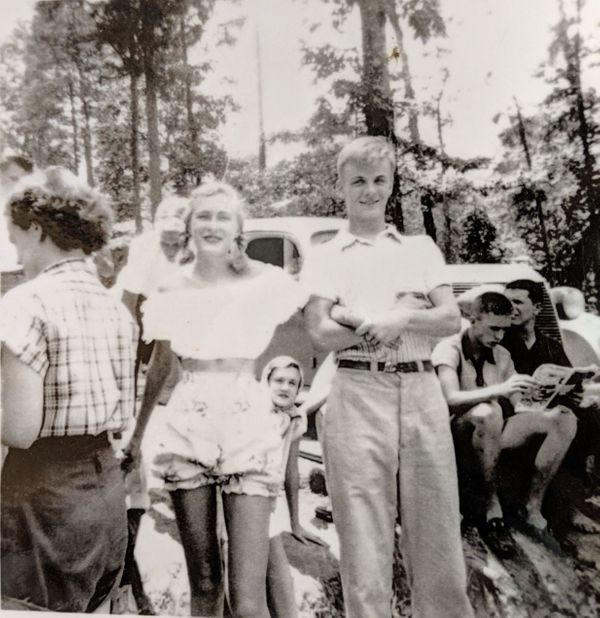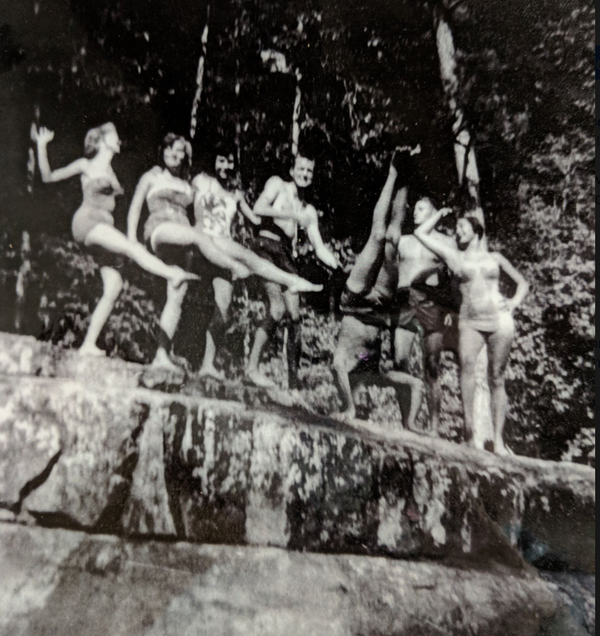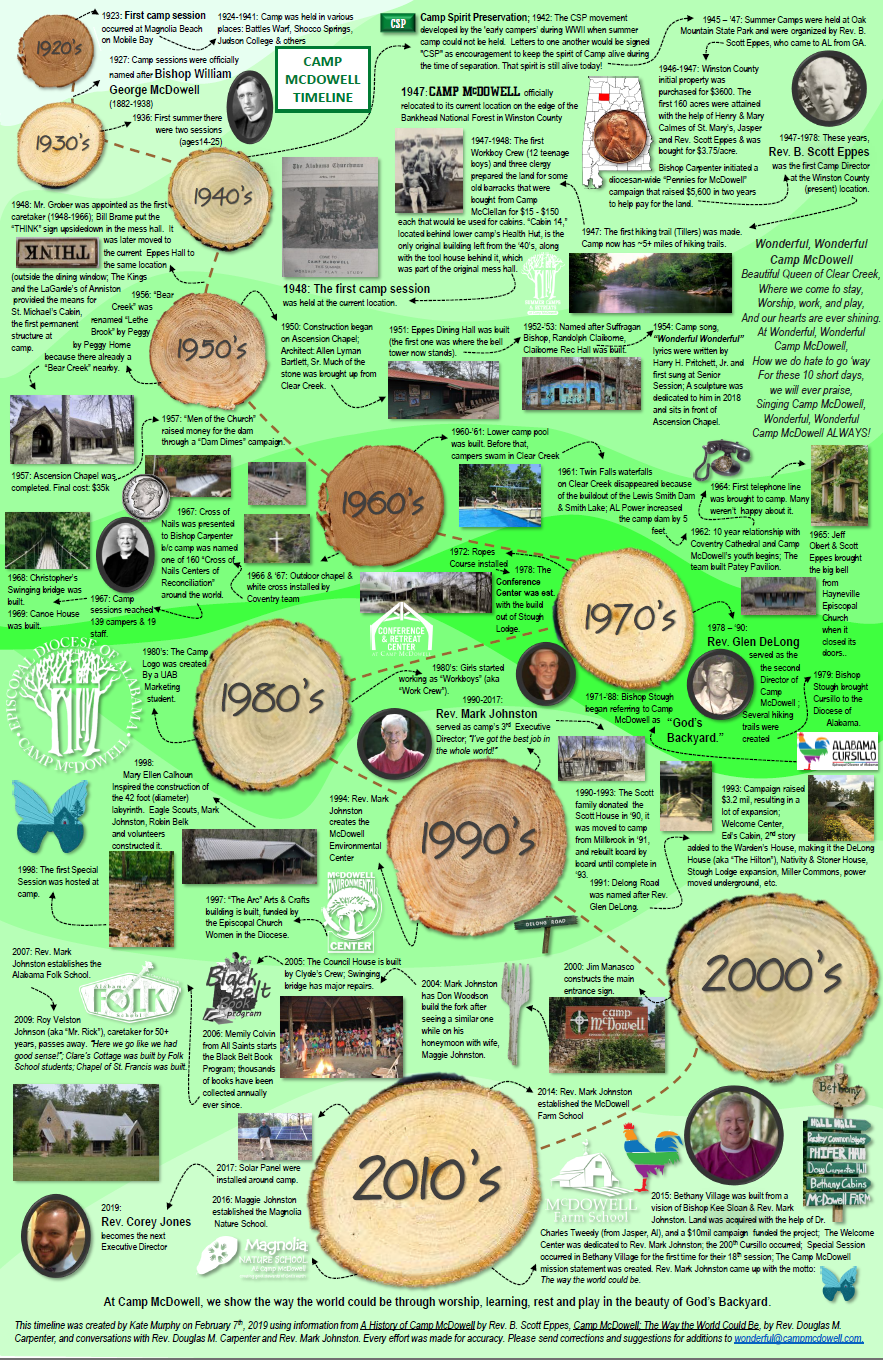
ABOUT US
- 205-387-1806
- wonderful@campmcdowell.org
Our History
"Welcome one another, therefore, just as Christ has welcomed you, for the glory of God." NRSV Romans 15:7
Camp McDowell has been around for close to 100 years and throughout that time, generations have enjoyed and been changed by its beauty and spirit. The history of McDowell is rich with stories, relationships, and anecdotes.
This page provides a high-level history and a historical summary via a timeline found below. Additional details, including more about the history of the land, buildings, and people affiliated with McDowell, are captured in a booklet written by the Reverend B. Scott Eppes and by the Reverend Douglas M. Carpenter. Reverend Eppes was the first Director of Camp McDowell once it was established at its current location and remained the Director for 31 years. Reverend Carpenter, at the age of 15, was on the first "Work Boy" crew who helped get the new camp property ready starting in 1947 so that Camp McDowell could host the very first Summer Camp Session in 1948. Camp has played a significant role throughout his life and continues to be to this day.
- ACCESS A HISTORY OF CAMP MCDOWELL, BY SCOTT EPPES
- ACCESS THE WAY THE WORLD COULD BE, BY DOUG CARPENTER
- Thanks go to Scott Eppes' family for allowing us to share his book.
- Thanks go to Doug Carpenter for gifting the proceeds of his book to Camp McDowell/ Bethany Village.
McDowell's heritage reaches all the way back to 1923 when, under the guidance and support of Bishop McDowell, who was the Bishop of the Episcopal Diocese of Alabama at the time, a group of 40 youth got together at Magnolia Beach on Mobile Bay for the first summer camp session. Through 1941, summer camp sessions moved around to and from various locations including Battles Wharf (a few miles south of Magnolia Beach), Camp Winnataska near Pell City, Shocco Springs near Talladega, and Judson College in Marion.
Summer Camp was put on hold until 1945 due to World War II, and, during that time, many of the youth who had previously attended Camp McDowell stayed in touch by forming an alignment called C.S.P., which stood for "Camp Spirit Preservation." Later, once sessions started up again, anyone who attended a summer camp session was inducted into the group. This purposeful act of the young people of that time to keep the momentum of the spirit of camp strong played a significant role in creating the welcoming, fun culture still felt today. Click HERE for more about CSP from one of the first Work Boys & first McDowell campers, Rev. Doug Carpenter.
Churches across the country received letters in 1945 from the U. S. President, encouraging organizations to create and support camp initiatives in an effort to help lift up morale. The Reverend B. Scott Eppes, who had moved from Georgia in 1942 to become the Rector of St. John's, Ensley and the Vicar of St. Mary's, Jasper, took the lead in establishing a permanent home for Camp McDowell. While the search for a permanent home for Camp McDowell was in the works, sessions started up again and, from 1945 - 1947, they took place at Oak Mountain State Park, just south of Birmingham.
Rev. Eppes worked with the diocese and, with the help of parishioners from St. Mary's, Jasper - Henry and Mary Calmes - found and started purchasing land in Winston County for Camp McDowell's permanent home. The cost for the initial 320 acres was $3600. The initial 19 buildings were bought for less than $1300 from Camp McClellan, near Anniston. McClellan was downsizing after the war and head a sealed bid sale of barracks that were no longer needed. These barracks became the first cabins and dining hall.
Adult volunteers from various Episcopal Churches around the state came and shared their time and talent to help get the property ready for the first summer session in 1948. Young men also volunteered at the last summer session at Oak Mountain in 1947 to be "Work Boys" to help get the new property in Winston County ready in time so that the first session at the new location could happen in 1948. Work Boys have been a part of the summer camp staff ever since and, in 1980, young women joined the crew. Today, that team is called the Work Crew.
Since that first summer session, McDowell has expanded to be much more than just a Summer Camp by continuously making its circle bigger, to look for, create, and include more ways to share the way the world could be. Rev. Glenn Delong was the Camp Director from 1978 - 1990 and, during his time, the McDowell Conference Center was established in 1978 with the construction of Stough Lodge. Today, we are able to host groups of over 800 people. During the tenure of Rev. Mark Johnston, who served as Executive Director from 1990 - 2017, several other ministries and programs were established, each one allowing for more opportunities to share the joy of "God's Backyard" with others.
The McDowell Environmental Center was established in 1994 and serves thousands of youth, teachers, and parents through residential and day-long environmental educational field trips. The Alabama Folk School started in 2007 as a way to teach and revive crafts such as old-time music, fiber arts, blacksmithing, and many more. 2014 saw the initiation of the McDowell Farm School which serves youth, teachers, and parents by sharing about sustainable agriculture and where their food comes from. Finally, in 2015, the Magnolia Nature School began, which is a nature-based preschool.
2015 also saw the completion of Bethany Village, which brought the size of McDowell's property up to 1,140 acres, almost doubling the size of camp. Dr. Charles Tweedy, who grew up at St. Mary's, Jasper, made it possible for camp to acquire this land, allowing a long-time vision of Bishop Kee Sloan and Rev. Mark Johnston to move forward with the project to realize their dream. The space is universally accessible with lodges, cabins, a large dining hall, a lake, a zero-entry pool and several other buildings enabling camp to invite and accommodate more people and events.
Ask anyone who has attended a session or event at McDowell and they will likely tell you that nothing compares to the feeling you get when you see mile marker 13 on Highway 195, or when you hear the Camp McDowell theme song that was created in 1954 by Harry Pritchett, Jr. on his way to Senior Session (see video on this page; click here for the lyrics), or when you partake in singing the Song of Simeon during Compline (see the video on this page by Jess Lingle), or when you get to laugh with a friend upon their first time seeing the fork in the road. McDowell has shaped and changed thousands of lives for almost 100 years, and is set to continue for at least another 100 years. The best is yet to come!
Everyone is welcome at Wonderful Wonderful Camp McDowell!
Most of the information shared here was sourced from The History of Camp McDowell, by Rev. B. Scott Eppes, Camp McDowell: The Way The World Could Be, by Rev. Douglas M. Carpenter, and from Rev. Mark Johnston.
